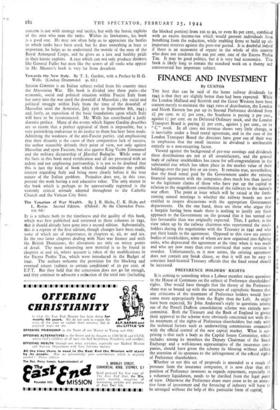The Taxation of War Wealth. By J. R. Hicks, U.
K. Hicks and L. Rostas. Second Edition. (Oxford : At the Clarendon Press. 12s. 6d.)
IT is a tribute both to the timeliness and the quality of this book, which was first published and reviewed in these columns in 1941, that it should already have gone into a second edition. Substantially, this is a reprint of the first edition, though changes have been made, some of which are of importance, in chapters xi, xii, xv and xix. In the two latter chapters dealing with Nazi war finance and with the British Dominions, the alterations are only on minor points of detail. The most interesting new material is to be found in chapters xi and xii, where account is taken of the modifications in the Excess Profits Tax, which were introduced in the Budget of 1941. The authors welcome the provision for the blocking and eventual return (subject to certain conditions) of 20 per cent. of E.P.T. But they hold that the concession does not go far enough, and they continue to advocate a redaction of the total rate (including the blocked portion) from too to 9o, or even 8o per cent., combined with an excess income-tax which would prevent individuals from benefiting from the reduction, while enabling firms to build up all- important reserves against the post-war period. It is doubtful indeed if there is an economist of repute in the whole of this country who does not condemn the zoo per cent. rate of the Excess Profits Tax. It may be good politics, but it is very bad economics. This book is likely long to remain the standard work on a thorny and controversial but important subject.


























 Previous page
Previous page